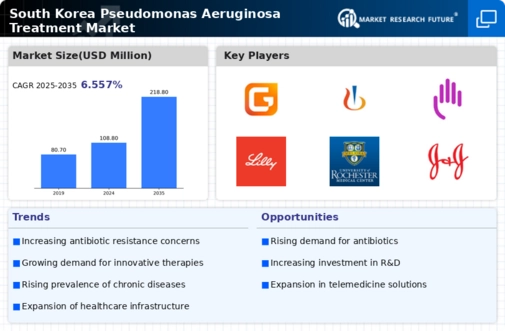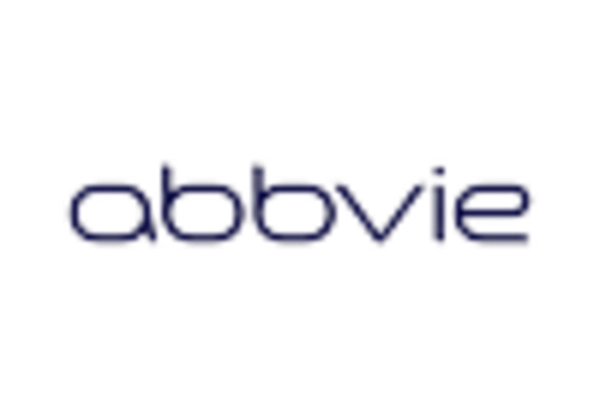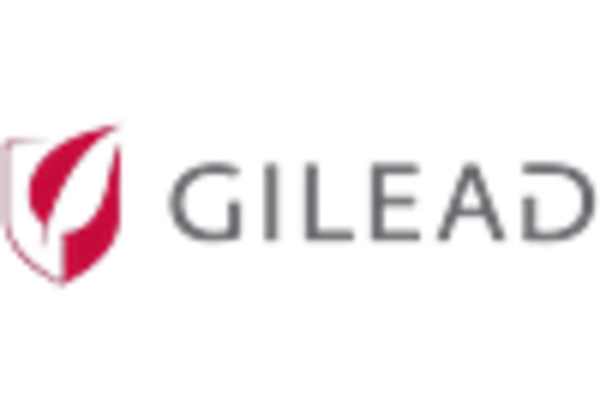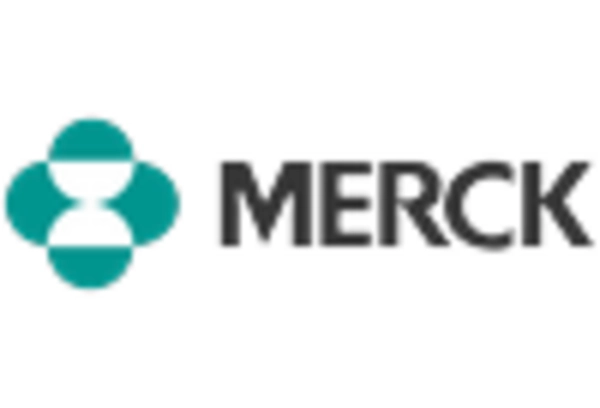Rising Healthcare Expenditure
The increase in healthcare expenditure in South Korea is a notable driver for the pseudomonas aeruginosa-treatment market. As the government allocates more funds towards healthcare services, there is a corresponding rise in the availability of advanced treatment options for infectious diseases. In 2025, healthcare spending is expected to reach approximately $200 billion, with a significant portion directed towards infectious disease management. This financial commitment facilitates the development and accessibility of effective treatments for Pseudomonas aeruginosa infections, thereby fostering market growth. Enhanced funding for research and development initiatives further supports this trend.
Increasing Incidence of Infections
The rising incidence of infections caused by Pseudomonas aeruginosa in South Korea is a critical driver for the pseudomonas aeruginosa-treatment market. Reports indicate that this pathogen is responsible for a significant proportion of hospital-acquired infections, particularly in immunocompromised patients. The prevalence of such infections has prompted healthcare providers to seek effective treatment options, thereby driving market growth. In 2025, it is estimated that the treatment market could expand by approximately 15% due to the increasing number of cases. This trend highlights the urgent need for innovative therapies and effective management strategies to combat the challenges posed by this opportunistic pathogen.
Regulatory Support for New Treatments
Regulatory support for the approval of new treatments is a significant driver for the pseudomonas aeruginosa-treatment market. The South Korean government has implemented streamlined processes for the evaluation and approval of innovative therapies, which encourages pharmaceutical companies to invest in research and development. This supportive regulatory environment is crucial for bringing new antibiotics and treatment options to market more rapidly. As a result, the market is expected to grow by approximately 8% in the coming years, as new therapies become available to address the urgent need for effective treatments against Pseudomonas aeruginosa infections.
Growing Awareness of Infection Control
There is a growing awareness of infection control practices among healthcare professionals and the general public in South Korea, which is positively impacting the pseudomonas aeruginosa-treatment market. Educational campaigns and training programs aimed at improving hygiene and infection prevention are becoming more prevalent. This heightened awareness is likely to lead to earlier diagnosis and treatment of infections, thereby increasing demand for effective therapies. As a result, the market may experience a growth rate of around 10% as healthcare facilities adopt more stringent infection control measures and protocols.
Technological Innovations in Treatment
Technological advancements in treatment modalities are significantly influencing the pseudomonas aeruginosa-treatment market. The development of novel antibiotics and alternative therapies, such as bacteriophage therapy, is gaining traction in South Korea. These innovations are essential in addressing the challenges posed by antibiotic resistance, which has been a growing concern. The market is projected to witness a growth rate of around 12% annually as new treatment options become available. Furthermore, the integration of personalized medicine approaches is likely to enhance treatment efficacy, thereby attracting investment and research in this sector.
















